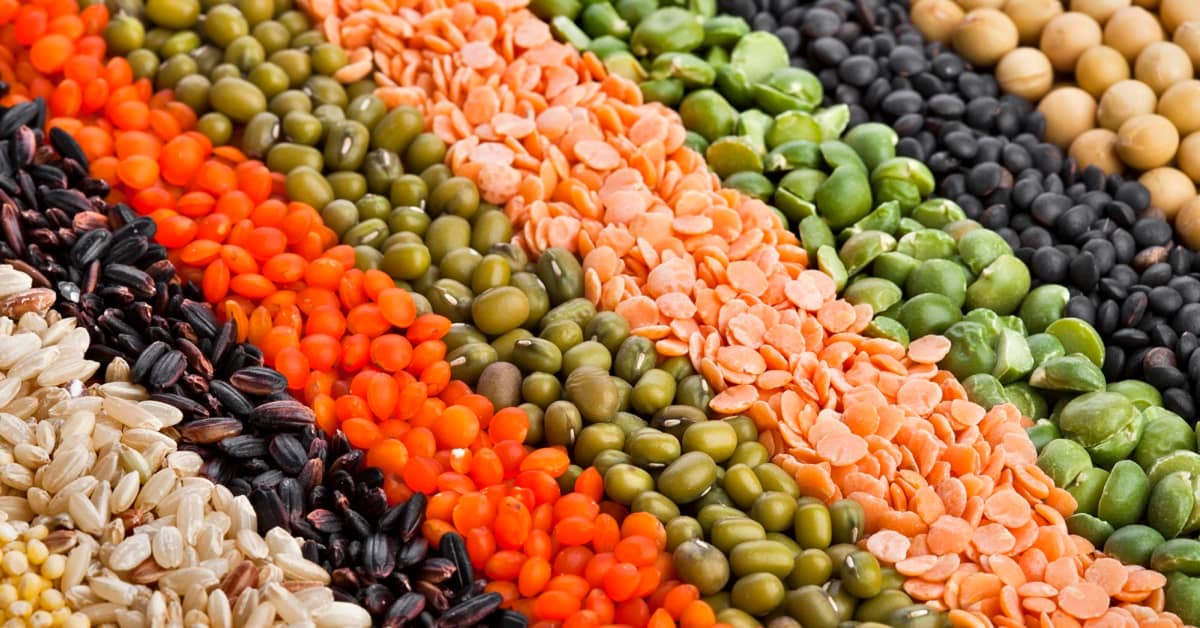
Let’s dig into these interesting new findings.
In what is the largest analysis to date on protein and mortality rates, researchers from Harvard University and Tehran University of Medical Sciences in Iran reviewed 32 different studies on diet and death rates over three decades.
Using a mathematical model, the researchers reported risk estimates for all causes, including cardiovascular and cancer mortality, among 715,128 adults aged 19 or older. During a period of 30 years, researchers recorded 113,039 deaths; 16,429 from cardiovascular and 22,303 from cancer.
Lowers Risk of All-Cause Death
Not too surprisingly, the results showed that high intake of total protein was associated with a lower risk of all-cause mortality compared with low protein intake.But here’s where things get interesting. Researchers found those with a plant protein-rich diet experienced an eight percent lower risk of death from all causes and 12 percent lower risk of cardiovascular mortality than those eating meat-based proteins.
Basically, the analysis concludes that folks who get their protein from plants, including beans, lentils, and nuts, lowered their risk of early death. Their meat-loving peers were not as fortunate.
Study authors suggest that a plant-based diet could have beneficial effects on cholesterol and lipid profiles, blood pressure, and blood sugars, which are all considered risk factors for diabetes and heart disease.
“These findings have important public health implications as intake of plant protein can be increased relatively easily by replacing animal protein and could have a large effect on longevity," the researchers reported.
Researchers published their results in The British Medical Journal.2
The Power of Protein
Wondering which plants deliver the highest protein bump?Well, you can’t go wrong with beans, chickpeas, lentils, tofu and edamame beans. Plus, vegetables like peas, broccoli and spinach can also boost your plant-based protein intake.
Besides reducing your chance of heart disease, plant proteins help counter sarcopenia, which is age-related loss of muscle.
Research suggests healthy older adults may require 1.2 grams of protein per kilogram of body weight each day. That adds up to about 95 grams for a 175-pound man.3 This is not much protein – less than four ounces.
If you’re a diehard meat lover, opt for lean meats such as poultry and fatty fish like salmon. And please steer clear of processed foods like bacon, hot dogs and cold cuts, including their supposedly healthy turkey and chicken versions.
When it comes to protein consumption, nutritional experts warn against going overboard.
"Spreading your protein throughout the day is a better way to maintain muscle mass compared with consuming high amounts at one time," says clinical nutritionist Emily Gelsomin, of Harvard’s Massachusetts General Hospital.4 She suggests divvying up your daily protein quota equally over your three meals. For example, if you need to consume 90 grams, try to eat 30 grams at each meal (that shouldn’t be hard, that’s only about an ounce of protein.)
Pondering The Best Protein
Personally, I take a middle of the road approach to finding the best protein sources. Through the years I have cut back substantially on meat-based meals, but I’m not a vegetarian.I eat grass-fed and organic meat when possible. However, I rarely grill meat as grilling causes carcinogens to accumulate. And don’t even get me started on the drawbacks of conventionally raised meat that’s riddled with dangerous hormones and antibiotics.
What’s more, I avoid consuming lots of fresh fish because of heavy metal contamination.
After considering this recent research, I believe I’ll be throwing a few more plant-based protein meals into my dietary rotation.
Whatever kind of protein you choose, I encourage you to eat a balanced diet rich in fruits and vegetables, whole grains, healthy fats and protein of the highest-quality.
- https://agingdefeated.com/red-meat-may-make-you-10-more-likely-to-die/
- https://www.bmj.com/company/newsroom/diets-high-in-protein-particularly-
plant-protein-linked-to-lower-risk-of-death/ - https://www.ncbi.nlm.nih.gov/pmc/articles/PMC4924200/
- https://www.health.harvard.edu/staying-healthy/the-power-of-protein
